The documents you need to submit along with your e-application are those that support the qualifications and other credentials claimed in your Express Entry profile as well as proof that you are not inadmissible to Canada. Documents provided must be in English or French. If they are not, you will need to have the documents translated by a certified translator.
1) Identity and Civil Status Documents:
Passports:
Include a copy of the biodata page of your passport or travel document as well for each of your accompanying family members.
Birth Certificates:
Include birth certificates for everyone included in your application. Adoption certificates are required if you have adopted children. If you are a resident of a country that does not issue birth certificates, you can alternatively include a document (affidavit) that confirms the details of your birth.
Civil Status:
Are you single, married, divorced, widowed, or in a common-law relationship? You must include proof of your civil status.
Single and never married: Usually no documents are required
Married: Marriage certificate
Common-law or conjugal relationship: Evidence of an authentic relationship such as shared ownership of a property or joint lease agreement
Divorced: Divorce certificate/s
Widowed: Marriage and death certificate You may need to provide a combination of these documents. For example, if you are divorced and are now in a common-law relationship, you will need to include both your divorce certificate and proof of an authentic common-law relationship.
2) Language Test Results:
As a general rule, always include a copy of your language test results. If your spouse or common-law partner completed a language test, be sure to include their results too.
Certain language testing centers give you the option to send your results straight to the IRCC, however, the IRCC prefers that candidates send the results themselves.
3) Education Documents:
Include an original Educational Credential Assessment (ECA) report (if you have foreign credentials) along with the following documents to support the credentials you have claimed points for:
Copies of certificates, diplomas, or degrees for each completed program of secondary and post-secondary study.
Copies of transcripts for each completed secondary and post-secondary program If you have claimed Canadian educational credentials, you must provide proof of successful completion of the program.
4) Settlement Funds:
Express Entry applicants must demonstrate that they have sufficient funds to support themselves and their family members during their settlement in Canada. Applicants with valid job offers in Canada, as well as CEC applicants are exempt from this requirement.
Important The number of family members includes both accompanying and non-accompanying dependents. That means even if your spouse or children don’t immigrate to Canada with you, your settlement funds must still reflect their share.
5) Work Experience Documents:
This step is very important since Express Entry is purely a skilled worker-driven Canadian immigration program. You need to demonstrate proof of the work experience mentioned on your Express Entry profile. The IRCC will review your document to decide if the NOC code you claimed accurately represents your work experience. For these reasons you will need to provide:
Documents for foreign work experience:
Reference letters (for all jobs in the last 10 years)
Copies of your employment contracts and payslips (if possible)
Documents for Canadian work experience:
T4 tax information slips
Notice of Assessment and Option C printout from CRA A copy of your work permit or employment authorization.
6) Job Offers:
You don’t need a job offer to immigrate to Canada via the Express Entry route. However, if you claimed points for a valid job offer from an employer in Canada on your profile, you must include a letter of employment and your LMIA-number, if applicable.
What’s a valid job offer? To be considered valid under Express Entry Canada, a Canadian job offer must be for a job that is:
Full-time and non-seasonal;
For a minimum of at least one year;
For a job offer at Skill Level 0, A, or B, according to the National Occupational Classification (NOC) system; and
Supported by a positive Labour Market Impact Assessment (LMIA), or exempt from needing one.
7) Documents to Prove You’re Not Inadmissible to Canada:
1. Medical examination confirmation (electronic copies)
You and all of your family members will need a medical exam even if they are not coming with you. This is to ensure that you will be able to sponsor your dependents in the future.
2. Police clearance certificates
You and all of your family members will need police clearance certificates from every country you or they resided in for six months or more since the age of 18. Avoid any delays by starting your police check as soon as you’re in the Express Entry pool.
8) Digital Photos:
Include 2 digital photos of you, your spouse or partner, and each dependent child.
9) Proof of Relative:
If you claimed points for a relative of yours or your spouse or partners living in Canada, you must provide:
1. Proof of their Canadian citizenship or permanent resident status
2. Proof your relative is residing in Canada like utility bills, Canadian tax documents, or banking records
3. Proof of familial relationship.
10) Provincial Nomination
If you achieved a provincial nomination you must include a copy of the nomination certificate that the province or territory sent you.



